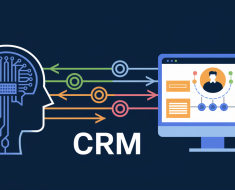Navigating the Pros and Cons of Automated Recruitment Systems
In today’s competitive job market, AI resume screening has become a prevalent tool for recruiters and hiring managers. As a job seeker, you might wonder whether you should opt out of this process. Understanding the advantages and disadvantages of AI resume screening can help you make an informed decision.
Understanding AI Resume Screening
AI resume screening utilizes algorithms to scan resumes for specific keywords, qualifications, and experiences that match the job description. This technology aims to streamline the recruitment process by filtering out unqualified candidates and highlighting those who meet the job criteria.¹²
The Pros of AI Resume Screening


1. Efficiency and Speed
One of the primary benefits of AI resume screening is its ability to process large volumes of resumes quickly. Traditional manual screening can be time-consuming, often taking days or even weeks to review all applications. AI can significantly reduce this time, enabling recruiters to focus on the most promising candidates faster.¹²
2. Consistency and Unbiased Screening
AI resume screening can help reduce unconscious biases that human recruiters might have. By focusing solely on the qualifications and experiences listed in the resume, AI tools can provide a more objective assessment of candidates, promoting diversity and inclusion in the workplace.²³
3. Cost-Effectiveness
Implementing AI in the recruitment process can save companies money in the long run. Although there is an initial investment in AI technology, it can reduce the need for extensive human resources dedicated to resume screening, thereby lowering operational costs.²⁴
The Cons of AI Resume Screening


1. Potential for Overlooking Qualified Candidates
AI systems rely heavily on keywords and may miss out on candidates who have the necessary skills but do not use the exact keywords in their resumes. This limitation means that a qualified candidate might be overlooked simply because their resume did not match the AI’s criteria.⁵
2. Impersonal Candidate Experience
While AI can handle routine tasks efficiently, it cannot replace the personal touch that human recruiters provide. Building a relationship with candidates is crucial, and relying solely on AI can make the recruitment process feel impersonal and automated.¹⁵
3. Bias in AI Algorithms
Although AI aims to reduce bias, it can sometimes inadvertently perpetuate existing biases present in the data it was trained on. For example, if historical hiring data is biased, the AI system might learn and replicate these biases, leading to unfair screening practices.³⁶
Should You Opt Out?


Deciding whether to opt out of AI resume screening depends on various factors, including your confidence in navigating the AI-driven job market and the specific industry you’re targeting.
When to Consider Opting Out
- Unique Qualifications: If your qualifications are unique or non-traditional, and might not be easily recognized by AI algorithms, opting out might give you a better chance of having your resume reviewed by a human recruiter.
- Creative Industries: Jobs in creative fields often value portfolio work and experiences that may not be easily quantifiable. Human recruiters might better appreciate these nuances.
- Technical Issues: If your resume format is complex or non-standard, it might not be parsed correctly by AI systems. In such cases, opting out ensures your resume is reviewed accurately.
When to Stay In
- Standardized Professions: For roles with clear, well-defined qualifications, AI resume screening can help ensure your resume is seen if it meets the job criteria.
- Large Companies: Big companies with high application volumes often use AI to manage the influx. Staying in the system can increase your chances of being considered quickly.
Tips for Navigating AI Resume Screening


If you decide to stay within the AI screening process, here are some tips to enhance your resume:
- Use Keywords: Ensure your resume includes keywords from the job description. This alignment increases the likelihood of passing the initial AI screening.²
- Simplify Formatting: Use a simple, clean format that AI systems can easily read. Avoid complex layouts, graphics, or unusual fonts.⁵
- Highlight Relevant Skills: Clearly list your skills and experiences that match the job requirements. Use bullet points and headings to make these sections stand out.²³
Conclusion
AI resume screening is a powerful tool that can expedite the hiring process and reduce bias. However, it has its limitations, such as potentially overlooking qualified candidates and creating an impersonal experience. Whether you should opt out depends on your unique situation and industry. By understanding the pros and cons and tailoring your approach accordingly, you can navigate the AI-driven job market more effectively.
References:
1. Pros and Cons of Using AI in Recruiting. Recruiter.com.
2. AI Recruitment 2022: The Pros and Cons You Should Know. Recruiter.com.
3. The Ultimate Guide to Using AI in Recruiting. Recruiter.com.
4. Should You Opt Out of AI Resume Screening? Exploring the Pros and Cons. Daily Interweb.
5. AI-Based Resume Screening: Do You Actually Need It? Recruiter.com.
Please note, that the author may have used some AI technology to create the content on this website. But please remember, this is a general disclaimer: the author can’t take the blame for any mistakes or missing info. All the content is aimed to be helpful and informative, but it’s provided ‘as is’ with no promises of being complete, accurate, or current. For more details and the full scope of this disclaimer, check out the disclaimer page on the website.





